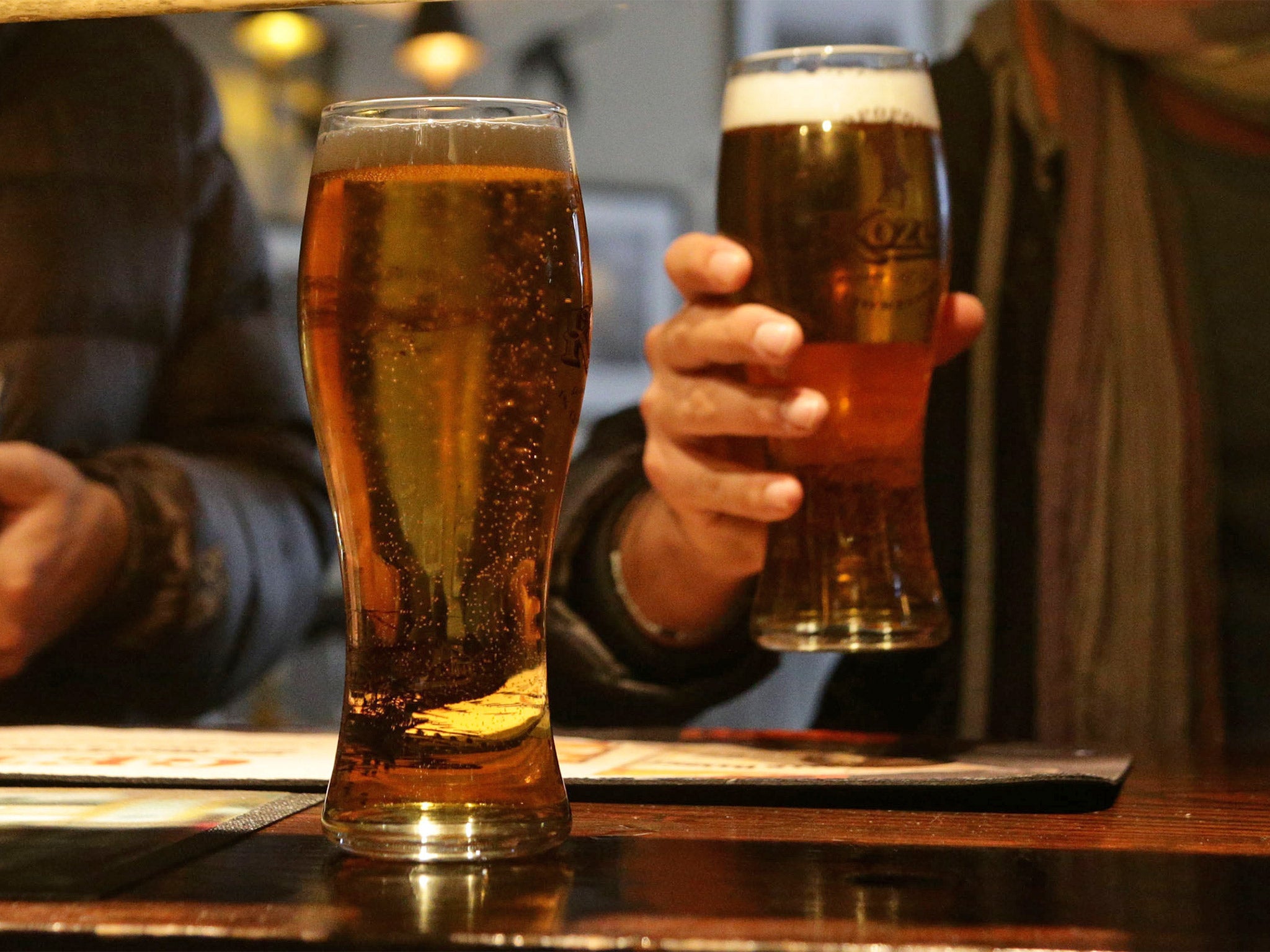Just three alcoholic drinks a day increase chances of liver cancer
34 studies show “strong evidence”

Your support helps us to tell the story
From reproductive rights to climate change to Big Tech, The Independent is on the ground when the story is developing. Whether it's investigating the financials of Elon Musk's pro-Trump PAC or producing our latest documentary, 'The A Word', which shines a light on the American women fighting for reproductive rights, we know how important it is to parse out the facts from the messaging.
At such a critical moment in US history, we need reporters on the ground. Your donation allows us to keep sending journalists to speak to both sides of the story.
The Independent is trusted by Americans across the entire political spectrum. And unlike many other quality news outlets, we choose not to lock Americans out of our reporting and analysis with paywalls. We believe quality journalism should be available to everyone, paid for by those who can afford it.
Your support makes all the difference.Three alcoholic drinks a day could lead to liver cancer – although drinking more coffee could prevent the disease, according to the most comprehensive review to date.
A World Cancer Research Fund review of 34 studies (on 8.2 million people in total) has shown that there is “strong evidence” linking the consumption of three or more alcoholic drinks a day to liver cancer.
Although the report’s findings were inconclusive for those with alcohol intakes below 45 grams per day, there was “ample evidence” of a significant statistical relationship between alcohol consumption and occurrences of liver cancer for those consuming more than this amount.
Director of World Cancer Research Fund UK, Amanda McLean, said: "Until now we were uncertain about the amount of alcohol likely to lead to liver cancer. But the research reviewed in this report is strong enough, for the first time, to be more specific about this."
Sir David Spiegelhalter, Winton Professor of the Public Understanding of Risk at the University of Cambridge, confirmed that the risks of getting liver cancer start to rise significantly when you consume over 5.5 units a day (about two large glasses of 11% wine).
Increasing your coffee consumption was, however, noted by the report to "probably" protect against liver cancer, whilst eating more fish and taking regular exercise were also said to lower your chance of developing the disease.
Jackie Ballard, chief executive of Alcohol Concern, warned: “It’s all too easy to slip into unhealthy habits and find that you’re drinking alcohol at a level which can put you at risk for a range of illnesses. More needs to be done around educating the public about the dangers of alcohol, while also targeting the cheap pricing, promotion and wide availability of alcohol.”
Sir Ian Gilmore, chair of the Alcohol Health Alliance UK and special adviser on alcohol to the Royal College of Physicians, also commented on the report’s claims: “Alcohol, like tobacco and asbestos, is a class 1 carcinogen and it is totally unacceptable that the public is not provided with such basic information.
“Evidence from the AHA demonstrates that the public are still largely unaware of the direct link between alcohol and cancer. Every person has the right to know what they are putting into their bodies and to make an informed choice. Current voluntary pledges on labelling by the alcohol industry do not go far enough; such groups will always place the interests of shareholders above the interests of public health.”
Obesity and the consumption of foods contaminated by aflatoxins (toxins produced by certain fungi) were also mentioned in the report as being strongly linked to the disease.
Around 4,700 people are diagnosed with liver cancer every year in the UK – it is one of the most deadly cancers with just a 12% survival rate after five years.
Join our commenting forum
Join thought-provoking conversations, follow other Independent readers and see their replies
Comments